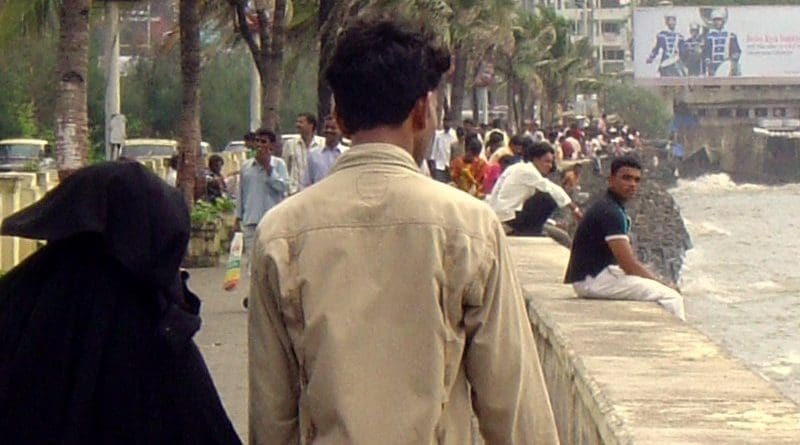Muslims In Contemporary India – OpEd
By Naz Dana
The condition of Muslims in contemporary India has generated intense debate and worry in recent years. Muslims, who make up 15% of the population in India, are struggling with issues like prejudice, socio-political exclusion, and targeted violence. In India, discrimination against Muslims frequently takes the form of limited employment and educational opportunities as well as unfair treatment by law enforcement. They are excluded and marginalized because they have been excluded from decision-making processes. Mob lynching, attacks on mosques, other forms of intergroup violence, and targeted violence against the Muslim community have been major causes for concern. The incidents have exacerbated intercommunity relations and contributed to a climate of fear and insecurity, leading to community tensions.
The recent initiatives of the Indian government, that specifically target the Muslim community, such as the implementation of the Citizenship Amendment Act, have sparked serious concerns about discrimination and a possible suppression of minority rights. The Act’s exclusion of the Muslim community from its purview and undermining of their citizenship rights are seen as attempts to marginalize the Muslim community. While BJP-affiliated groups attack Muslims and Dalits based on rumors that they killed or traded cows for beef, states use laws against cow slaughter to prosecute Muslim cattle traders. Most recently, a law against conversion was passed in three BJP-ruled states; in practice, it is applied to Muslim men who marry Hindu women.
Muslims in India frequently struggle with the feeling of being “the other,” which means that mainstream society views them as outsiders. This fosters a feeling of discrimination and exclusion. This “othering” has numerous, intricate causes. Muslims in India have historically been observed as being distinct from the majority population, which has exacerbated these differences. Islam is frequently portrayed as being incompatible with Indian culture, and Muslims are frequently stereotyped as terrorists, criminals, and anti-nationals. Political parties have occasionally attempted to broaden their support by appealing to sentiments of a religious or communal nature and stigmatizing Muslims. Under the facade of advancing Hindu nationalism, this has contributed to anti-Muslim rhetoric and helped to normalize acumen. Religious conflicts have frequently been oppressed by political parties to expand their sustenance, appealing to Hindu nationalism and marginalizing India’s Muslim population.
There are numerous Muslim human rights violations cases in India where the Muslims throughout their country especially in Assam, Delhi, Jammu and Kashmir, and Uttar Pradesh are facing the worst human rights violations, including arbitrary deprivation of living, violations of freedom of religion or belief, association and assembly. There are causes why Muslim discernment in India still exists, and the issue is complex and multifaceted. Historical factors: Conflicts between Hindus and Muslims date back to India’s British colonial era. Hindu-Muslim tensions increased during the colonial era as a result of British authorities’ “divide and rule” strategy. As a result, there is a great deal of animosity and mistrust between the two communities.
Civil society, human rights organizations, and political figures have expressed concern over these circumstances and called for firm action to be taken to advance social harmony and address refinement against the Muslim community. The circumstance emphasizes the need for coordinated efforts to enhance the Muslim community’s situation, promote social and economic inclusion, and protect minorities’ rights in India. The issues elevated above highlight the need to address more general societal problems, such as the ostracism and segregation of India’s Muslim community. Legal, social, and economic strategies that work in concert to advance upgraded inter-community communication, cultural sensitivity, and social inclusion must be part of the solutions. India must concentrate on developing a fair and equal society that protects the rights of all of its citizens, regardless of religion, if it is to establish a strong democracy.
Writer is working as Assistant Research Fellow at Balochistan Think Tank Network (BTTN).


“Life of Muslims In so called Contemporary India in India.”Dear Naz Dana is much better than the majority Muslim countries be it Iran,Afghaistan,Pakistan or Uighurs in China and must have been witnessed during the G 20 meet in Srinagar.Wish you had visited India North to South before you write on hearsay rumours or what you read or watch on your altready perceived mindset articles. ”Had You attended you would have been compelled to change your perception that Indian Muslims live better.” Indian Muslims have greater freedom of speech,right to practice their religion and their women exercising greater freedom. Indian Muslims have held the highest positions in all Government offices including the President.
Where are Eurasia Review’s articles on the condition of Hindus in Pakistan and Bangladesh?